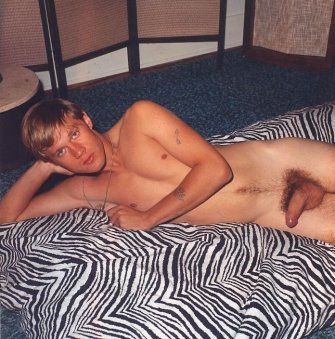Vintage Thursday

Studio 54 was a legendary New York City disco located on West 54th Street in Manhattan. It opened on April 26, 1977 and closed in March 1986. It currently serves as a venue for the Roundabout Theatre Company, with a 900 seat theatre equipped with two full service bars.
A successor club, Studio 54, Las Vegas opened its doors in December 1997.
The theater originated as the Gallo Opera House in 1927, and over the course of the next decade changed its name several times, being known as the New Yorker Theatre in 1930, the Casino de Paris in 1933, the Palladium Theater in 1936 and in the Federal Music Theater in 1937; later that year, it was changed back to the New Yorker Theater. This name would remain until CBS purchased the facility in the 1950s, renaming it Studio 52.
From the 1950s to the mid-1970s, CBS used the location as a radio and TV stage that housed such shows as What's My Line?, The $64,000 Question, Password, Beat the Clock, The Jack Benny Show, I've Got a Secret, and Captain Kangaroo. The soap opera Love of Life was produced there until 1975.
In 1976, CBS concentrated most of its New York broadcast functions around the corner to its storied Ed Sullivan Theater (CBS-TV Studio 50) or west to the CBS Broadcast Center, and sold Studio 52. The building was purchased and renamed for its street address (254 West 54th Street), a location already noted for another tenant in the building, famed disco record label West End Records.
Studio 54 was operated by the flamboyant, openly gay, publicly visible Steve Rubell and retiring, straight silent partner Ian Schrager. Hedonistic Rubell was known for hand selecting guests from the always huge mobs outside, mixing beautiful "nobodies" with glamorous celebrities in the same venue. "Studio", as it came to be called, was notorious for the hedonism that went on within; the balconies were notorious for sexual encounters, and drug use was rampant. Its dance floor was decorated with a depiction of a Man in the Moon that included an animated coke spoon.
In 1979, Rubell and Schrager were arrested and charged for skimming $2.5 million, and the club was closed with one final party, called "The End of Modern-day Gomorrah", on February 4, 1980. New York lawyer Gary Naftalis successfully represented Schrager in the ensuring tax evasion prosecution. After its closing, cocaine and money were found in the club's walls.
The club reopened on September 12, 1981, when it was bought for $5 million by restaurant and nightclub owner Mark Fleischman. Celebrities continued to frequent the club, though the level of sensationalism was far toned down from its original levels. This second incarnation closed down in March 1986, due to changing tastes.
In the late 1980s and early 1990s, the venue was known as The Ritz, and hosted rock concerts. In 1994, after becoming a strip club for a few years, the club finally reopened with much fanfare with a live concert by disco stars Gloria Gaynor, Vicki Sue Robinson, and Sister Sledge. The club again went into bankruptcy the following year until 1998, when it was acquired by the Roundabout Theater Company and renamed The Roundabout Theater at Studio 54.
After the New York club closed down in 1995, Studio 54 moved to Las Vegas, located at the MGM Grand. Designed to be a replica of the original club, it has most of the original elements and equipment, including the "Man in the Moon" and the spoon - however the two are never displayed together. The club was visited on opening night by Elton John, one of the most frequent guests at the original location.
It has since become one of Las Vegas' most popular dance clubs, with a reputation for a strict door policy, but not as strict as the original's. However, the newer site is cause for contention amongst fans of the original location, who have charged that the Las Vegas venue is nothing more than Studio 54 in name only.
During its heyday it played a formative role in the growth of disco music and nightclub culture in general, and was one of the first nightclubs to blur the distinction between "straight" and "gay" nightlife.
The disco was depicted in the 1998 film 54 and was the model for the club featured in the movie, The Last Days of Disco. It was parodied in the 2002 movie Austin Powers in Goldmember as Studio 69.
STUDIO 54 FAN SITE









1 comment:
A great read Stephen, and I really liked the blonde. A cute blonde laying on a zebra print comforter. What, I ask you, could be more classy than that?!
Post a Comment